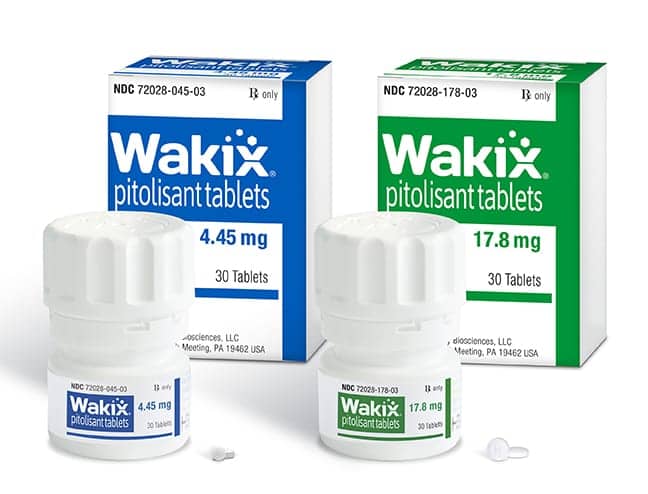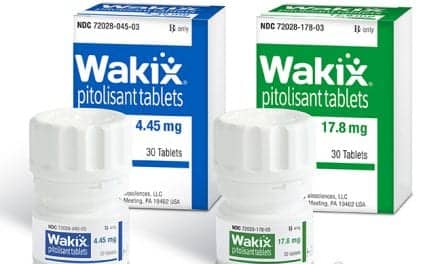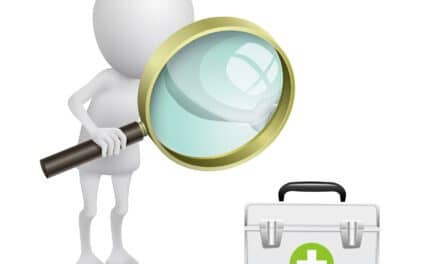Harmony Biosciences Holdings Inc presented safety and efficacy data from a phase 2 proof-of-concept study evaluating pitolisant for the treatment of excessive daytime sleepiness in people with Prader-Willi syndrome at SLEEP 2023.
The positive signal supports further development to determine if pitolisant has the potential to address an unmet medical need for people with Prader-Willi syndrome experiencing EDS.
Notably, both the high- and low-dose pitolisant treatment arms demonstrated greater mean improvement from baseline in the Epworth Sleepiness Scale for Children and Adolescents (ESS-CHAD) scores in the overall patient population when compared to placebo. A dose-response was observed with a relatively higher response rate occurring in the high-dose pitolisant group compared to the low-dose pitolisant group. This proof-of-concept study was not powered to demonstrate statistical significance and was designed for signal detection.
Harmony is working with the US Food and Drug Administration to discuss the results of this study and to finalize the phase 3 registrational study, which it expects to initiate in the second half of this year.
“The positive signal from our phase 2 study represents a milestone in our quest to address the unmet medical need surrounding excessive daytime sleepiness in Prader-Willi syndrome, for which there is currently no approved treatment,” says Kumar Budur, MD, MS, chief medical officer at Harmony Biosciences, in a release. “Given the lack of existing treatment options for people with Prader-Willi syndrome, these findings represent a step forward in our efforts to improve the quality of life of individuals living with this condition and our commitment to rigorously pursuing promising new indications for pitolisant beyond narcolepsy.”
Among the 15,000 to 20,000 Americans living with Prader-Willi syndrome, more than half of them experience symptoms of excessive daytime sleepiness. There is currently no FDA-approved treatment for excessive daytime sleepiness management in people with Prader-Willi syndrome.
“Prader-Willi syndrome impacts and imposes challenges on people living with the disease and their entire family making the importance of new clinical advancements difficult to overstate,” says Susan Hedstrom, executive director of the foundation for Prader-Willi Research, and Paige Rivard, CEO of Prader-Willi Syndrome Association | USA, in a joint statement in a release. “As advocates, we witness the remarkable courage, determination, and love within the [Prader-Willi syndrome] community. By moving forward clinical research and hastening innovation to address current gaps in treatment, we are hopeful to one day reduce the symptom burden for those living with [Prader-Willi syndrome] and their families so they can continue living even more fulfilling lives.”
The phase 2 clinical trial was a randomized, double-blind, placebo-controlled study designed to assess the safety and efficacy of pitolisant in people living with Prader-Willi syndrome. In the trial, eligible patients who were genetically confirmed to have PWS with EDS were enrolled in an 11-week double-blind treatment phase that included a three-week titration phase and eight weeks of stable dosing. Participants were then randomized (1:1:1) to receive low- or high-dose pitolisant or a matching placebo based on age (n=65). The primary efficacy endpoint was change from baseline to week 11 in total score for the parent or caregiver version of ESS-CHAD. Summary statistics for the primary efficacy endpoint of change from baseline in total ESS-CHAD score were applied.
Results from the study include:
- Pitolisant demonstrated a clinically meaningful change (defined as a ≥ 2-point improvement on this scale) of 3.7 to 5.5 points across all age groups in both the high- and low-dose treatment arms with the strongest signal observed in the youngest age group (children ages 6-11);
- In two of the three age groups (children and adults), there was a clinically meaningful difference (minimum of 2 points) between pitolisant and placebo, driven by the high dose pitolisant treatment group;
- Most common adverse events included anxiety (11.9% pitolisant; 4.3% placebo), irritability (9.5% pitolisant; 4.3% placebo), and headache (7.1% pitolisant; 4.3% placebo); and
- No Serious Adverse Events (SAE) were reported in the pitolisant group, and one SAE (deep vein thrombosis) was reported in the placebo group.
- Pitolisant is marketed as Wakix in the US and is FDA-approved to treat EDS or cataplexy in adult patients with narcolepsy. Pitolisant is not approved for use in patients with Prader-Willi syndrome and is currently being evaluated as an investigational agent in this patient population.
Harmony will also present the phase 2 data during the Prader-Willi Syndrome Association | USA National Convention in Orlando from June 21-24 as well as at the Foundation for Prader-Willi Research 2023 Research Symposium and Family Conference happening in Denver from October 5-7.




